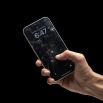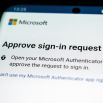People of a certain age routinely find themselves dismissed as lacking practical skills or 'handiness'. In fact, a recent study into American DIY skills found that 'millennial dads' were woeful in comparison to their own parents when it came to being useful around the house.
Gender stereotypes aside (why was it just dads?), limiting the concept of handiness to skills that involve drilling, cutting, sawing or using tools does a disservice to the concept. And a new study bears this out.
Researchers by Aspect, a property maintenance firm based in London staffed almost entirely by highly skilled tradespeople, asked 2,000 adults to rate in terms of usefulness a list of skills, ranging from fixing a leak to restoring Internet connection. The study findings revealed that perceptions of 'handiness' and DIY have evolved massively over the past few years and skills that didn't even exist ten years ago are now considered by the majority to be essential DIY competencies.
For example, the ability to fix a router, back-up data to the cloud and install a smart home device were rated as 'highly useful' and 'highly impressive'. In fact, some of the 'digital DIY' skills, such as connecting a smart speaker to a smart bulb, were rated as more useful than the traditional skills like hanging wallpaper, installing a washing machine or wall-mounting a TV. Three of the ten top-rated skills were digital skills.
Which really means that a far higher number of people than previously thought can legitimately consider themselves to be 'handy around the home'. Why? Most adults of a certain age will have at least one memory of providing unofficial tech support for older relatives struggling with consumer tech in the home. Whether it's fixing a parent's computer or setting up a grandparent with a smart doorbell or home security system, the first people called on to help are normally tech savvy kids.
And according to the study, it's the over-55s that value these digital DIY skills the most. That age group consistently rated digital skills the most highly, and were most likely to give digital skills the highest rating for usefulness and impressiveness.
"These findings show that although people still really value traditional DIY talents, the concept of 'handiness' is evolving to include skills that didn't even exist ten years ago" says Nick Bizley of Aspect, the company who commissioned the study.
"For example, changing a light bulb was something most people could do quite easily, but the advent of the 'smart home' has introduced new complexities to what used to be a simple task. "Handiness is in the eye of the beholder and it's unfair to criticize people for lacking traditional DIY abilities because the chances are, they've got equally useful and impressive skills that are set to become more necessary as homes evolve.
"Young people have been getting flack for not being as handy as their parents, but when you consider the proportion of 18-34 year olds in rented homes compared to their parents' generation, and that renters are often prohibited from doing their own maintenance due to their tenancy agreements, it's no surprise they're typically less experienced with traditional DIY skills. But young people are the ones most of us turn to when the Internet goes down or when we need help setting up the latest smart device. Everyone is handy with something and the study shows that we're learning to value new expressions of handiness more and more."









